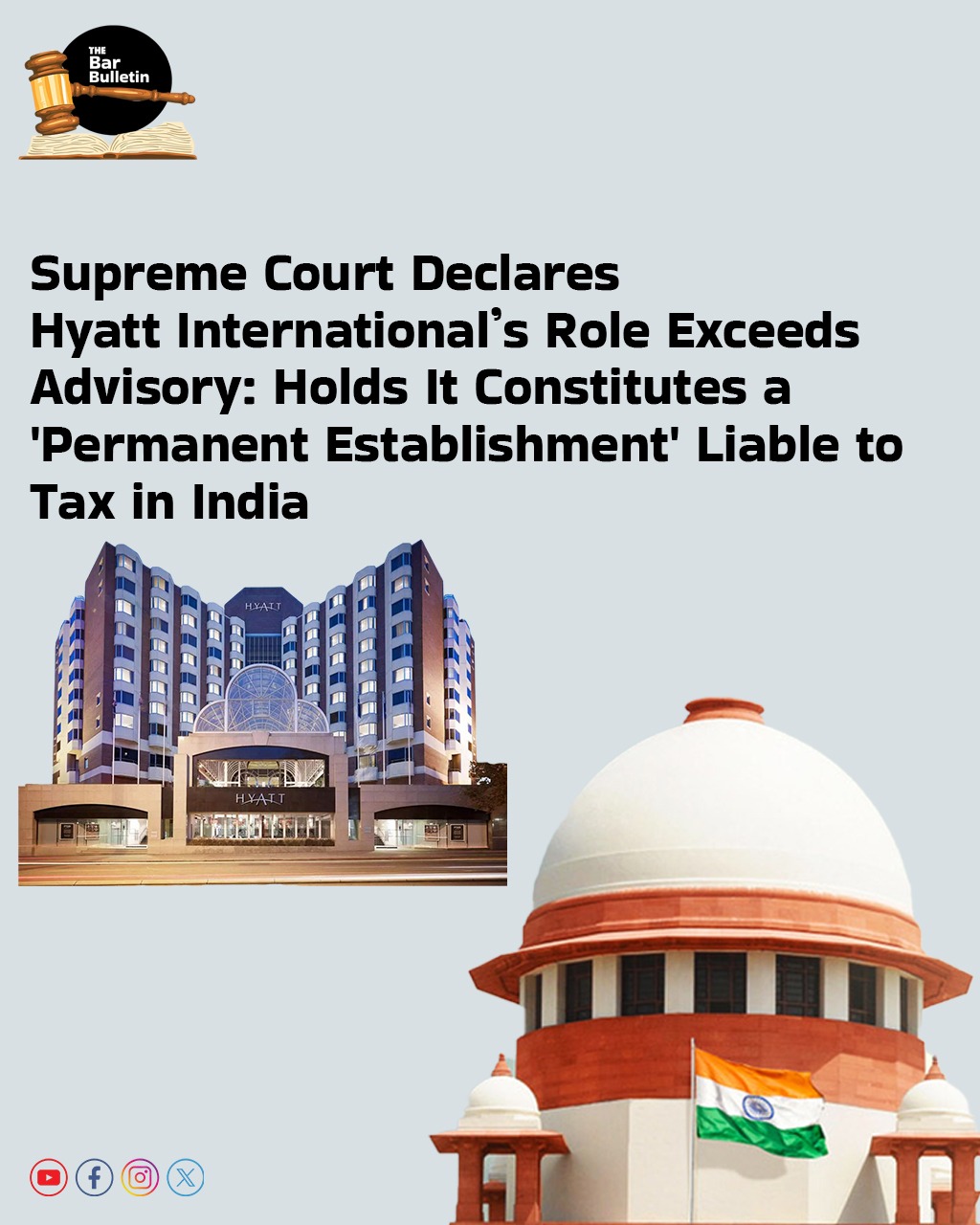The Supreme Court has ruled that Hyatt International Southwest Asia, a UAE-based entity, constitutes a “Permanent Establishment” (PE) in India under Article 5(1) of the India-UAE Double Taxation Avoidance Agreement (DTAA), thereby making it liable to pay tax in India on income earned through Strategic Oversight Services Agreements (SOSA) with Indian hotels.
A Division Bench comprising Justices J.B. Pardiwala and R. Mahadevan found that Hyatt’s extensive control over the day-to-day operations of Asian Hotels (Delhi and Mumbai) went far beyond a mere advisory role. The Court held that the rights conferred under the SOSA provided Hyatt with enforceable and ongoing authority over strategic, operational, and financial decisions of the hotel, establishing a clear and continuous business presence in India.
The appellant had contended that it did not have a fixed place of business, and that its employees’ presence in India fell short of the nine-month threshold under Article 5(2) of the DTAA. It also claimed exemption from Indian taxation, asserting that the income received was not taxable either as business income or as fees for technical services, in the absence of a PE.
However, the assessing officer concluded that the appellant had a business connection under Section 9(1)(i) of the Income Tax Act, a PE under Article 5, and that the income constituted both royalty and fees for technical services. The Income Tax Appellate Tribunal (ITAT) and the High Court upheld these findings, concluding that the appellant had a fixed place PE in India.
Affirming the lower court’s findings, the Supreme Court underscored that a fact-specific inquiry is necessary to determine whether a foreign enterprise has a fixed place PE. Key indicators include: the right to use the premises, the level of supervision and control, and whether the business operations were carried out through that location. Citing OECD commentary and principles, the Court observed that Hyatt’s involvement in hotel operations, enforcement of its standards, and ability to derive profit-linked fees from the hotel’s revenues demonstrated a sustained and substantial nexus with the business activities in India.
The Court rejected the argument that Hyatt’s intermittent physical presence in India negated the existence of a PE. It held that continuity of business operations, not individual employee presence, was the relevant consideration.
Concluding that Hyatt’s business presence in India satisfied all the requirements for a fixed place PE, the Court held that the income derived under the SOSA agreements was attributable to the Indian PE and was therefore taxable in India under Article 7 of the DTAA.
Appearances:
For the Appellant: Senior Advocate S. Ganesh, with Advocates Ujjwal A. Rana and Himanshu Mehta
For the Respondents: ASG N. Venkatraman, Senior Advocate Arijit Prasad, AOR Raj Bahadur Yadav, with Advocates Rupesh Kumar, Shashank Bajpai, V. Chandrashekhara Bharathi, Santosh Kumar, and Diwakar Sharma
![]()



